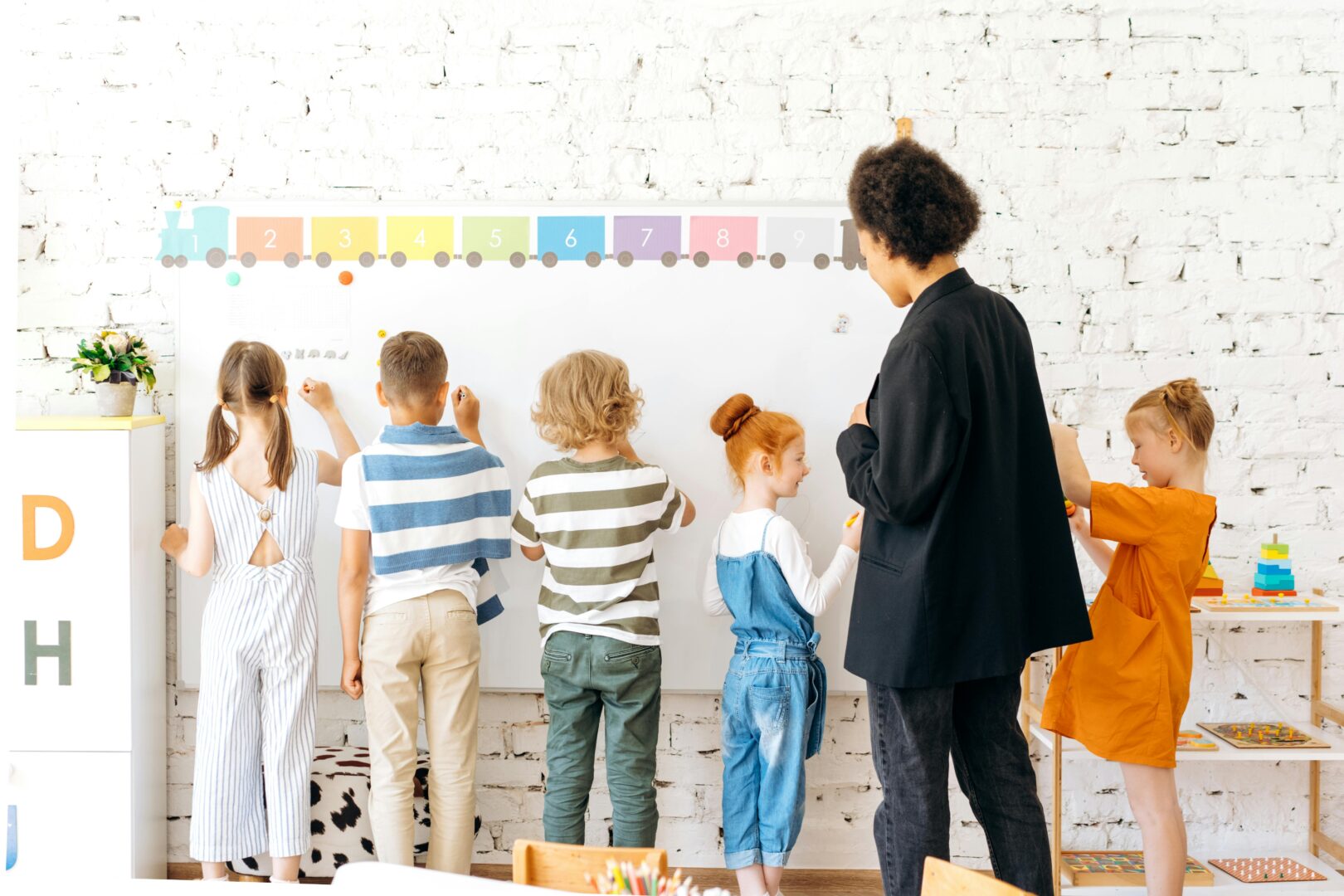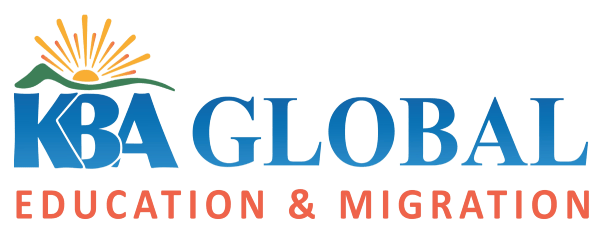Early childhood education has long been on Australia’s medium- to long-term skills shortage list. With the ongoing funding and support from the government, pursuing the early childhood teacher PR pathway makes sense if you want to live in Australia.
Learn more about the steps and requirements for non-Australian early childhood teachers to obtain a PR.
How to Become an Early Childhood Teacher in Australia and Get a PR
Below is an overview of how you can obtain permanent residency via the early childhood teacher pathway:
1. Complete a qualification in early childhood education.
Early Childhood (pre-primary school) teacher is categorised as Skill Level 1 on the ANZSCO skilled occupation list. This means you must obtain a bachelor’s degree or higher qualification.
Completing your degree in Australia is ideal. However, you may earn your degree overseas, as long as it is equivalent to an Australian bachelor degree (AQF Level 7).
Read more about qualification requirements to become an early childhood teacher.
2. Obtain a positive skills assessment.
The Australian Institute for Teaching and School Leadership (AITSL) is the assessing authority for initial teacher education programmes, including those in pre-primary education.
You must meet their qualifications and English language requirements, among other things.
3. Apply for an Australian work visa.
There are several visa pathways to get a PR. You must apply online via Immiaccount.
Before making an application, be sure to check whether you meet the visa’s eligibility requirements, such as age, work experience, employer sponsorships, and so on.
You might benefit from working with a registered migration agent as they can help you determine your eligibility.

PR Visa Pathways for Early Childhood Teachers
Below are your visa options to migrate to Australia as an early childhood teacher:
Points-tested visa
These are visas that require skilled workers, including early childhood teachers, to score a minimum number of points on the Points Test to be eligible. The points are awarded based on criteria such as age, education background, skilled work experience, English proficiency and so on.
- Skilled Independent Subclass 189 visa
A permanent visa that allows skilled workers to live and work in Australia indefinitely, without the need for employer sponsorship or state/territory nomination.
- Skilled Nominated Subclass 190 visa
A permanent visa that allows skilled workers to live and work in the nominating Australian state/territory.
- Skilled Work Regional Subclass 491
A provisional visa allows skilled workers to live and work in regional Australia. A temporary visa, has a pathway to PR via the Permanent Residence (Skilled Regional) Subclass 191 visa.
You can use our free PR points calculator to learn more about specific areas that can boost your points score.
Employer-sponsored visa
These visas allow skilled workers to live and work in Australia, provided they are sponsored by an Australian employer.
- Employer Nomination Scheme, Subclass 186
A visa that allows workers to live and work anywhere in Australia as permanent residents.
- Temporary Skilled Shortage (TSS) Subclass 482 visa
A visa that allows workers to fill genuine temporary vacancies. It has a pathway to permanent residency through the 186 visa or 187 visa.
- Skilled Employer Sponsored Regional 494 visa (SESR)
A visa that allows workers to fill genuine temporary vacancies. It offers a pathway to PR through the 191 visa.
Requirements to Become an Early Childhood Teacher
Qualifications
You must meet the following conditions:
Complete at least 4 years of higher education level qualification
Your qualifications should include an AQF Level 7 equivalent qualification (bachelor degree) and an initial teacher education qualification equivalent to at least an AQF Level 6. This can be met in the following ways:
- Completing a 4-year Bachelor of Early Childhood Teaching in Australia
- Completing any 3-year bachelor’s degree (either in Australia or overseas) and then studying Master of Childhood Teaching (2 years), totalling 5 years of higher education study
- Completing any 3-year bachelor’s degree (either in Australia or overseas) and then a 1-year Graduate Diploma in Early Childhood teaching, totalling 4 years of higher education study
Note: only 1 full year of initial teacher education qualification is required.
Undergo field placement
You must complete at least 45 days of supervised training as an early childhood teacher for students from birth to 8 years of age. This placement should happen within the duration of your early childhood education studies.
Skills Assessment
You must achieve a positive skills assessment from the Australian Institute for Teaching and School Leadership (AITSL).
Apart from qualification and English skills requirements, take note of other specific requirements you must complete to support your skills assessment application.
English Language
You must achieve the following Academic English Language Testing System (IELTS) scores:
- Reading: 7
- Writing: 7
- Speaking: 8
- Listening: 8
Note: This requirement does not apply if you completed your bachelor degree in Australia, Canada, the Republic of Ireland, New Zealand, the United Kingdom or the United States of America.
AITSL only accepts Academic IELTS Test Report Form. Other language tests like PEAT, PTE, Cambridge and TOEFL will not be accepted.
Visa Eligibility Criteria
Depending on the visa you choose, you will need to meet certain eligibility requirements, which typically include the following:
- Age requirements. Generally, you must be under 45 years of age.
- Work experience
- Achieve at least the minimum points score (for skilled independent visas)
- Health and character requirements
- Sponsoring employers (for employer-nominated visas)

Early Childhood Teacher Courses & Qualifications
Bachelor of Early Childhood Education
If you’re interested in gaining a more in-depth understanding of child development and educational theory, you can take a bachelor instead of a Cert III. This programme is the standard qualification to become a registered early childhood teacher in Australia.
Duration: 4 years
Work roles: Registered early childhood teacher, pre-school teacher
Certificate III in Early Childhood Education
If you are new to early childhood education and have no prior qualification/degree, you can take a Certificate III in Early Childhood Education to gain entry into a diploma programme.
Duration: 6 months to 1 year
Work roles: Early childhood educator assistant, childcare worker, nanny
Diploma of Early Childhood Education and Care
After finishing your Certificate III qualification, you can take advantage of this diploma programme to take on managerial or supervisory roles. Although this also prepares you for a bachelor’s degree in the future.
Duration: 1 to 2 years
Work roles: Group leader, children’s service director/manager, family daycare provider
Graduate Diploma of Early Childhood Education
If you already hold an undergraduate degree but want to pursue a career in early childhood education, you can take and complete a graduate diploma to work in the field.
Duration: 1 year
Work roles: You can be an early childhood educator, but may also focus on areas like management, consulting and research, depending on your degree.
Master of Early Childhood Education
This master programme allows you to develop in-depth expertise in specific areas of early childhood education. Upon completion, you can take on highly advanced roles, for instance, education research and policy development.
Duration: 2 years
Work roles: You may work as childhood education consultants, policy reviewers, researchers, and so on
What does an early childhood teacher do?
As an early childhood teacher, you are responsible for the following:
1. Planning and Implementing Educational Programmes
It is your role to craft educational programmes tailored to the developmental needs of young children. You create lesson plans that incorporate play-based learning and ensure children develop cognitive, social and emotional skills effectively.
2. Observing and Assessing Development
You will closely observe children’s progress and assess their development. You must adapt your teaching methods accordingly to accommodate any learning difficulties or special needs. Regular assessments are also necessary to help you track each child’s growth and inform your future planning.
3. Creating a Safe and Stimulating Environment
You are responsible for creating a safe space for children, where they feel secure and express themselves freely through exploration. This includes organising the environment to maintain cleanliness and inspire learning.
4. Encouraging Social Interaction
You lead activities that promote empathy, cooperation and team work, which are all necessary to develop communication skills and emotional intelligence.
5. Communicating with Parents and Carers
You will provide parents and guardians regular updates on their child’s progress through meetings and written reports. If there are any concerns, such as a child having difficulty adjusting to the classroom environment, it is the teacher’s role to discuss strategies with the parents to support their child’s development at home.
6. Promoting Health and Well-being
You will teach children good hygiene practices, like proper hand-washing, incorporate physical activities to keep them active and prepare a well-balanced diet throughout the day.
Check Your Eligibility With a Trusted Migration Agent
With over 10+ years of industry experience, KBA Global has assisted many aspiring overseas skilled workers just like you to get their work and PR visas in Australia.
We believe that an honest and genuine dialogue is necessary for a successful visa application. We’ll be upfront with you in terms of how your chances currently stand and specific steps you can take to improve them.
Book a free consultation today and have a worry-free visa journey.
Disclaimer: The above information is a general guide and not professional immigration advice. Be aware that immigration laws and regulations can change swiftly, potentially rendering some or all of the information outdated. Thus, before using the information above, we recommend checking the current laws through assistance from a migration agent or the Department of Home Affairs website.

